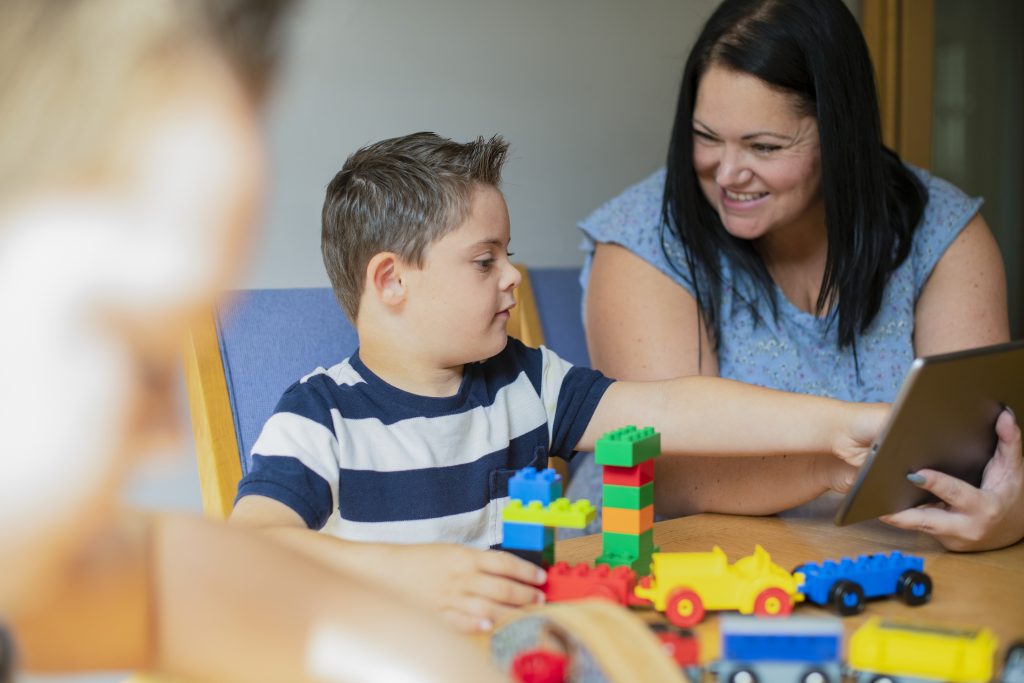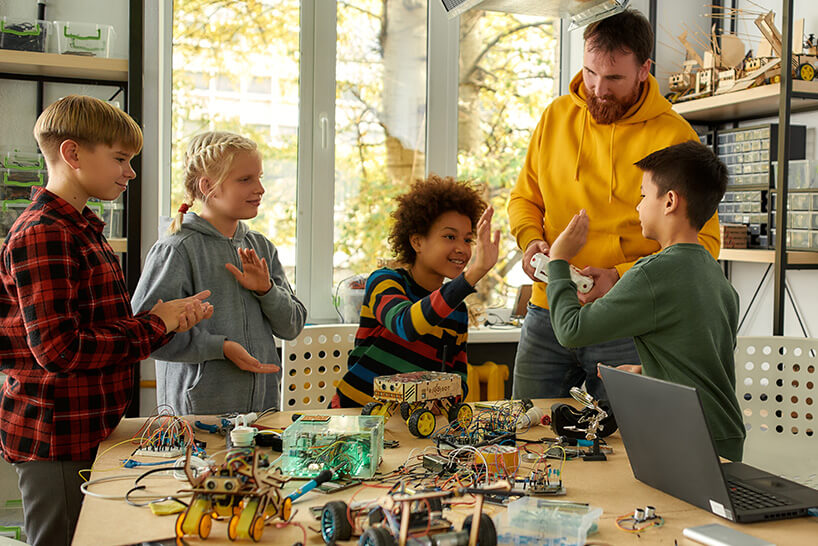About
Mission
To provide motivated students the opportunity to achieve academic excellence and develop life skills in a technology-rich, career focused, and safe learning environment taught by caring and knowledgeable educators.
In short, our mission is to empower learners to achieve excellence.


Vision
Our overarching vision is to fill the world with knowledge, achievement, and integrity.
Philosophy
We believe the primary purpose of public education is to develop responsible, healthy, and productive citizens who become successful, happy, contributing members of society. We accomplish this by helping students develop not only knowledge in core academic areas, but also relevant life skills, community purpose, college readiness, and workforce competency.
Core Values
I Can FOCUS
Find Success
Own Responsibility
Control My Emotions
Unleash Potential
Simplify
WE Are Brave
Bold
Respectful
Agile
Valid
Exceptional

- Sterling Kellis, Founder
More support and Better care

Student-Centered
Student-Learners are at the heart of our educational philosophy. All Freedom Prep resources, staff, and support personnel exist to drive student achievement and success.

Technology-Driven
Our courseware personalizes instruction through relevant resources including self-paced educational videos, interactive articles, audiobooks, simulated learning activities, quizzes, tests, assessments, grades, group discussion forums, and more.

Teacher Supported
Every student is assigned a team of three caring and knowledgeable educators to oversee their learning. Teachers provide direct instruction, Instructors provide personalized intervention, and Guides provide mentoring and support services.
What we teach

Content
Our curriculum pulls from a variety of sources and uses a wide range of tools selected with the unique needs of our students in mind. Through continuous oversight and revision, we ensure our curriculum remains up to date and relevant and aligned to our mission, vision, and philosophy.

Courses
We offer over 200 interactive classes, including Art, Music, Foreign Language, Science, & Technology. Each class includes: On-demand lectures, live instruction and personalized feedback by Course Instructors, coaching and intervention by caring Guides, and a wide range of support tools for success and mastery.
Learning Tracks | earn Certificates
Students in grades 9-12 have the option of pursuing a Freedom Prep Learning Track. A Learning Track is a sequence of classes aligned to a specific area of interest. Completion of 4 courses within a track earns a student a minor, while completion of 6 courses earns students a major. Students who complete study tracks demonstrate preparedness for college, career, and life endeavors. Tracks are based on market need and student interest and reverse-designed to align to relevant and in-demand workforce certificates.

Earn College Credit | CLEP & AP CLasses
We offer our high school students 16 college-level AP courses (48 credits) and a path to complete 8 additional College-Level Examination Program® (CLEP) exams (24 credits). AP and CLEP credits are accepted by over 2,900 colleges and universities in the United States, including all Maricopa County Community Colleges, AZ’s three public universities (ASU, UofA, NAU), and many private universities (including University of Phoenix and Grand Canyon University).
Tuttle Twins | Freedom Matters
We have partnered with the Libertas Institute to bring the popular Tuttle Twins series to our students. This is a great opportunity for students of all ages to understand and develop an appreciation for personal liberty. Freedom-loving parents will love how the 10-part book series teaches personal responsibility, entrepreneurship, the Golden rule, market economics, win-win competition, and a variety of other issues.

Prenda World
We have partnered with Prenda, an experienced provider of home-based microschools, to bring hands-on support to our online students in dozens of cities throughout Arizona. Prenda’s innovative approach to personalized learning helps foster creativity, independent thinking, and confidence.
How we do it

FLIP-BLENDED LEARNING
Blended, or Hybrid learning, is the combination of online and traditional classroom learning that leverages technology to control some element of the time, place, path, and pace of learning.
Flipped Learning refers to a pedagogical approach in which individual instruction is followed by collaborative, guided application, as opposed to group instruction followed by individual or independent application. The four pillars of FLIP are Flexible Environment, Learning Culture, Intentional Content, and Professional Educator.
- Flexible Environment: Flipped Learning allows for a variety of learning modes; educators often physically rearrange their learning spaces to accommodate a lesson or unit, to support either group work or independent study. They create flexible spaces in which students choose when and where they learn. Furthermore, educators who flip their classes are flexible in their expectations of student timelines for learning and in their assessments of student learning.
- Learning Culture: In the traditional teacher-centered model, the teacher is the primary source of information. By contrast, the Flipped Learning model deliberately shifts instruction to a learner-centered approach, where in-class time is dedicated to exploring topics in greater depth and creating rich learning opportunities. As a result, students are actively involved in knowledge construction as they participate in and evaluate their learning in a manner that is personally meaningful.
- Intentional Content: Flipped Learning Educators continually think about how they can use the Flipped Learning model to help students develop conceptual understanding, as well as procedural fluency. They determine what they need to teach and what materials students should explore on their own. Educators use Intentional Content to maximize classroom time in order to adopt methods of student-centered, active learning strategies, depending on grade level and subject matter.
- Professional Teacher: The role of a Professional Teacher is even more important, and often more demanding, in a Flipped Classroom than in a traditional one. During class time, they continually observe their students, assessing their work and providing them with frequent specific feedback relevant in the moment, and assessing their work. Professional Teachers are reflective in their practice, connect with each other to improve their instruction, accept constructive criticism, and tolerate controlled chaos in their classrooms. While Professional Teachers take on less visibly prominent roles in a flipped classroom, they remain the essential ingredient that enables Flipped Learning to occur.
Teacher Role
Quality teachers are one of the greatest indicators of student achievement. The role of a teacher can be diverse and often unnecessarily complex resulting in strain and inefficiency for both the student and the teacher. Our philosophy and academic plan simplifies and streamlines the instructional process to better serve the student. Students interact with multiple, specialized teachers all committed to their individual success. These teachers are:
- Student – Yes, the student. We put students at the center of their own education. Freedom students are not merely passive listeners, but active learners, continuously engaged in their own learning process. Students set daily SMART goals in online journals and track their personal progress and success. Students proactively evaluate their weekly performance and solicit intervention as needed. We strongly believes that students are the most relevant stakeholder in their own education which is why helping students become active learners capable of defining personal success and working toward it is one of the most valuable skills we can help develop.
- Teacher – A Teacher refers to the subject matter expert who provides video lectures and instruction for a subject or course. A Teacher has the primary responsibility of clearly and effectively communicating concepts, content, and lessons that lead to mastery of a topic or standard. Automating this component of instruction ensures consistent, high-quality delivery of relevant subject material for each and every student.
- Instructor – The primary role of an instructor is to help students achieve mastery in their assigned course or subject material. This is done by overseeing instruction, intervention, and grading. While a Master Teacher assists with direct instruction, an Instructor oversees the student’s general learning process. This may include facilitating individual or group activities and discussion; administering assignments, quizzes, and exams; evaluating performance data; and providing personalized feedback. Through the assistance of real-time data, an instructor monitors and oversees a student’s time on task, progress, and performance and then provides targeted intervention as appropriate or needed.
- Guide – A Guide is a caring adult who has the primary role of mentoring and guiding students toward success. This includes helping students set and complete daily goals, helping with time on task, helping facilitate learning activities, and helping students identify and access available resources.
Each teaching role is vital to a student’s success. By empowering students to become active learners and relevant stakeholders in their own education, they are placed in their own driver’s seat. Leveraging master teachers to deliver high-quality, adaptive instruction helps ensure consistent instruction while also freeing up instructor and guide time for intervention. Instructors help students work towards competency and mastery based on individual need and ability. And Coaches help mentor and assist students with structure, motivation, and guidance. This system of shared responsibility and specialization helps personalize instruction and maximize student performance to ensure no one falls through the cracks.

